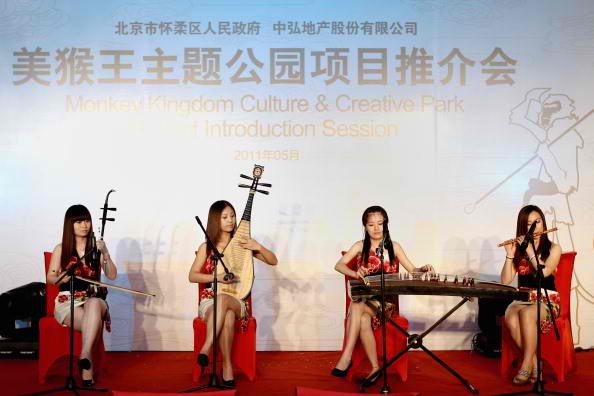A new performing arts center was built in Beijing called the Tianqiao Performing Arts Center. Musicians like Zuo gained hope for artists with the new venue.
"China needs a top national performing hall of this kind," said Wu Ziquiang, head of the center's arts committee.
He added, "But promoting national culture will take extended efforts, and will require some adjustments in our approach."
The performing arts center is 560 square meters, with the capacity to hold 500 to 800 people. It is next to a subway station to be opened at the end of this year. Livehouses were built near it.
"This is a huge investment compared to some of the old livehouses," said Zuo. There was an expected revenue of a million yuan when the center opened but some of the original co-founders gave up due to uncertainty about the rate of return of livehouses.
The arts center gains profits from ticket sales, food and drinks. Zuo said that there are plans to open art exhibitions to attract more people.
The location is very convenient and the new subway station is expected to bring in more revenue.
"The old Jiangjinjiu was more centered on rock and folk music. The new one is more diverse, opening up to original pop music, electronic music, and shows of crossover culture genres like dramas," said Zuo.
Wu Ningyue, the lead singer of Buyi, a Chinese rock and folk music band from Ningxia Hui Autonomous Region, having a livehouse is a necessity.
He said, "China's rock music was born in the live scene. Only through experimentation and trial and error can a band mature."
For Nevin Domer, who runs a vinyl label in Beijing, he sees more talent to be launched because of the arts center.
He said, "The styles of music these venues cater to is also becoming more diverse as audiences develop more specialized tastes and are more demanding of the venues and musicians they patronize. Change is normal in music scenes and healthy in a scene developing as rapidly as Beijing's is."



























